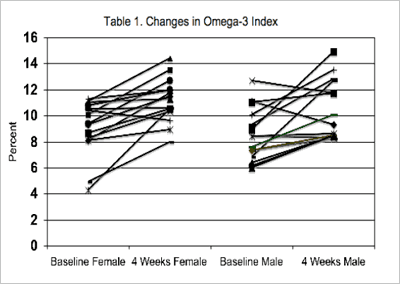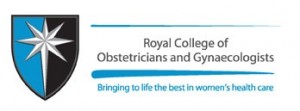Omega III Salmon Oil Plus Published in FASEB online Journal April 2008
FASEB (Federation of American Societies for Experimental Biology) Annual Meeting, April 2008
![]() The Federation of American Societies for Experimental Biology (FASEB) is the coalition of societies representing the biological sciences (Physiology, Biochemistry, Immunology, Nutrition, Pharmacology, Anatomy). It promotes scientific progress and education that lead to improvements in human health. Their annual meeting is Experimental Biology. Scientists from over 50 countries attend the meeting, predominantly researchers from academic institutions. The American Society for Nutrition, the society which accepted the study for presentation at Experimental Biology 2008, is the premier research society dedicated to improving the quality of life through the science of nutrition.
The Federation of American Societies for Experimental Biology (FASEB) is the coalition of societies representing the biological sciences (Physiology, Biochemistry, Immunology, Nutrition, Pharmacology, Anatomy). It promotes scientific progress and education that lead to improvements in human health. Their annual meeting is Experimental Biology. Scientists from over 50 countries attend the meeting, predominantly researchers from academic institutions. The American Society for Nutrition, the society which accepted the study for presentation at Experimental Biology 2008, is the premier research society dedicated to improving the quality of life through the science of nutrition.
Salmon Oil Plus Study Abstract
Effect of Omega-3 Fatty Acid Supplementation on Omega-3 Index and Red Blood Cell (RBC) Membrane Fatty Acid Composition
Omega-3 fatty acids (n-3 FA) have been shown from epidemiological studies and clinical trials to reduce the incidence of cardiovascular disease (CVD) in patients with the pre-existing CVD as well as in healthy individuals. In randomized secondary prevention trials fish or fish oil have been shown to reduce total and coronary heart disease (CHD) mortality at intakes of about 1 g/day. The Omega-3 Index (EPA + DHA expressed as % of total fatty acid) has been proposed as a physiologically relevant, modifiable, independent and graded risk factor for death from CHD. RBC membrane fatty acid composition correlates well with biomarkers of n-3 FA including serum EPA and DHA, whole blood EPA, DPA and DHA and fatty acid composition of cardiac tissue. The present dietary intervention study investigates the effect of a fish-oil based, n-3 FA supplement on Omega-3 Index and RBC fatty acid composition. Thirty healthy men and women consumed a supplement providing 1070 mg total n-3 FA (460 mg DHA, 480 mg EPA, and 80 mg other n-3 FA) daily for 4 wks. At the end of this period there was a significant 23% increase (p<0.01) in the Omega-3 Index (Fig.1). While there were no significant changes in % linoleic, gamma linoleic, and alpha linolenic acid; EPA, DPA and DHA significantly (p<0.01) increased compared to baseline values (0.76% versus 1.4%; 2.30% versus 2.58% and 5.49% versus 6.60% respectively. There was a decrease (p<0.05) in arachidonic acid 19.58% versus 18.83%). This study shows that RBC membrane fatty acid composition and so Omega-3 Index can change in a short period of time with a fish-oil based supplement.
References
Harris, WS, von Schacky C: The Omega-3 Index: A new risk factor for sudden cardiac death? Prev. Med. 2004, 39:212-220.
Harris et al. Omega-3 Fatty Acids in Cardiac Biopsies from Heart Transplant Patients: Correlation with Erythrocytes and Response to Supplementation. Circulation. 2004
==================================================
Cardio Risk Reduction—American College of Nutrition annual meeting, October 2008
Published in the Journal of the American College of Nutrition – Volume 27 (5) October 2008
 About ACN: The American College of Nutrition (ACN) is the leading nutrition education organization whose focus is to enhance nutrition and metabolism knowledge among physicians and professionals from all disciplines with a common interest in nutrition, and to promote the application of such knowledge to the maintenance of health and treatment of disease. Their annual meeting provides a forum for interchange of views, professional and educational experiences, and research results in the general field of nutrition. It serves the needs of physicians and professionals from all disciplines with a common interest in nutrition.
About ACN: The American College of Nutrition (ACN) is the leading nutrition education organization whose focus is to enhance nutrition and metabolism knowledge among physicians and professionals from all disciplines with a common interest in nutrition, and to promote the application of such knowledge to the maintenance of health and treatment of disease. Their annual meeting provides a forum for interchange of views, professional and educational experiences, and research results in the general field of nutrition. It serves the needs of physicians and professionals from all disciplines with a common interest in nutrition.
Abstract 21
EFFECT OF OMEGA‐3 FATTY ACIDS SUPPLEMENTATION ON MARKERS OF CARDIOVASCULAR HEALTH AND
INFLAMMATION
Carughi A. and Perelman D. Health Research & Studies Center, Los Altos, CA.
Epidemiological and clinical studies have shown the cardio‐protective effects of omega‐3 (n‐3) FA in patients with pre‐existing cardiovascular disease and in healthy individuals. While mechanisms of action are not fully understood, n‐3 FA are known to influence eicosanoid generating systems from membrane phospholipids and to lower proinflammatory circulating lipids. This study investigated the effects of low dose, marine sourced n‐3 FA supplementation on selected markers of cardiovascular health and inflammation in healthy, normo‐triglyceridemic volunteers. Thirty‐one men and women took a supplement providing 1070 mg n‐3 FA, comprising 480 mg docosahexaenoic acid (DHA), 460 mg eicosapentaenoic acid (EPA), 50 mg docosapentaenoic acid (DPA) and 80 mg other n‐3 FA daily for 8 wks. At the end of the supplementation period, % EPA, DHA and DPA in red blood cell membranes (RBCm) were higher than baseline values (p<0.01). Although neither % linoleic acid nor γ linolenic acid in RBCm change, % arachidonic acid (AA) was significantly lower. There was a 38% increase (p<0.01) in the omega‐3 index (%DHA + %EPA in RBCm; 6.1 ± 1.8 vs. 8.5 ± 1.8) and a 17% reduction (p<0.01) in serum triglycerides. Lp‐PLA2 levels were slightly higher after supplementation (147 ± 43 vs. 157 ± 51 nm/mL) but were within the normal range. While IL‐6 levels did not change, inflammatory index was significantly lower (%AA:%EPA in RBCm; 2.5 ± 1.8 vs. 0.8 ± 1.2). This study shows that low dose, marine sourced n‐3 supplementation for just 8 weeks can have a positive effect on markers of cardiovascular health and inflammation.
==================================================
Omega-III Salmon Oil Plus was Featured By Royal College of Obstetricians & Gynaecologists!
Would You Like More Information?
Call us toll-free at (888) 508-1234 to order today or Order Online

HWW Enterprise Group
353 Carolina Mtn. Dr. #188
Franklin, NC 28734
Email: bewell@havegoodhealth.net






